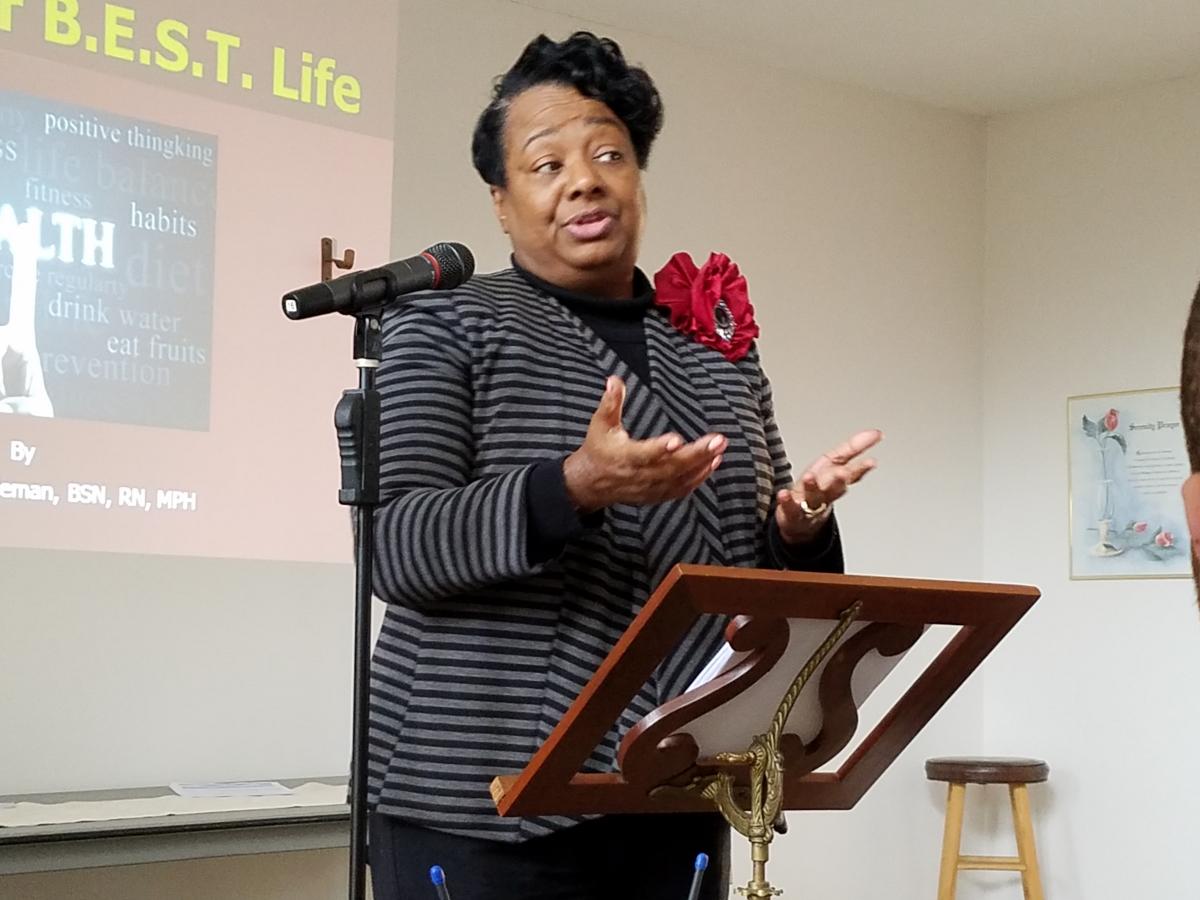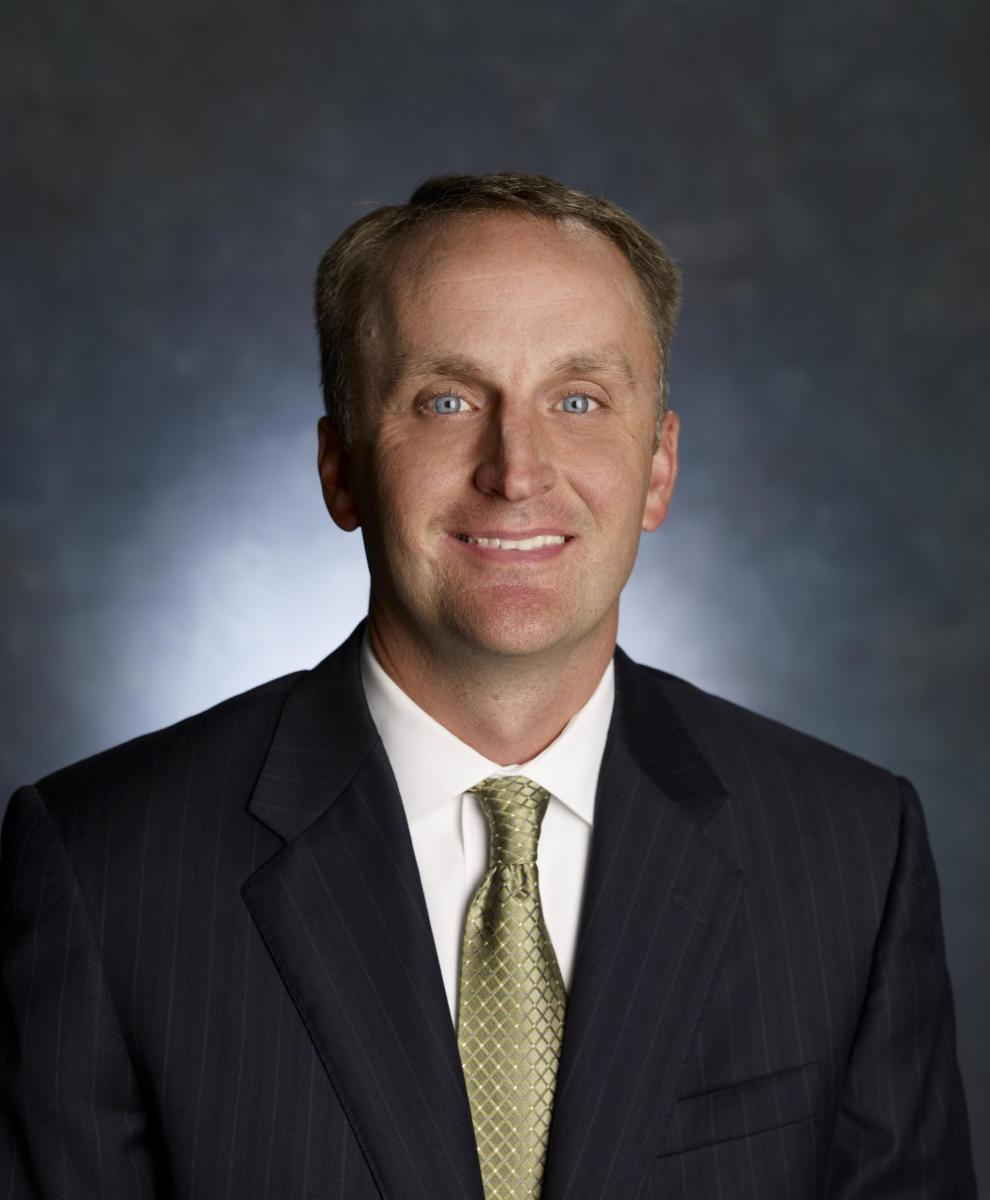Adventist HealthCare Washington Adventist Hospital and Adventist HealthCare Shady Grove Medical Center each recently received a national award for high-quality cardiac care they provide to the region.
Story by Danielle Lewald
 The 2015 Platinum Performance Achievement Award from the American College of Cardiology’s NCDR ACTION Registry–GWTG recognizes the hospitals’ commitment and success in implementing a higher standard of care for heart attack patients. Adventist HealthCare Washington Adventist Hospital in Takoma Park, Md., and Adventist HealthCare Shady Grove Medical Center in Rockville, Md., are among only 319 hospitals nationwide to receive the Platinum honor.
The 2015 Platinum Performance Achievement Award from the American College of Cardiology’s NCDR ACTION Registry–GWTG recognizes the hospitals’ commitment and success in implementing a higher standard of care for heart attack patients. Adventist HealthCare Washington Adventist Hospital in Takoma Park, Md., and Adventist HealthCare Shady Grove Medical Center in Rockville, Md., are among only 319 hospitals nationwide to receive the Platinum honor.
“We are honored to be recognized by the American College of Cardiology for the sixth consecutive year for providing high-quality cardiac care,” says John Sackett, executive vice president and chief operating officer of Adventist HealthCare and president of Adventist HealthCare Shady Grove Medical Center. “This national achievement reflects the ongoing commitment of our staff who care for some of our most critically ill patients and their families.
To receive the Platinum award, Adventist HealthCare Washington Adventist Hospital and Adventist HealthCare Shady Grove Medical Center consistently followed the treatment guidelines in the ACTION Registry–GWTG Premier for eight consecutive quarters and met a performance standard of 90 percent for specific performance measures. The Premier registry requires hospitals to report more detailed data on specific measures.
“As a leader in cardiac care in the D.C. region, we are proud to be honored again for delivering quality patient care," says Erik Wangsness, president of Adventist HealthCare Washington Adventist Hospital. “Adherence to these guidelines is a critical step in saving the lives and improving outcomes of heart attack patients.”
Full participation in the registry engages hospitals in a robust quality improvement process using data to drive improvements in adherence to guideline recommendations and overall quality of care provided to heart attack patients.
Both hospitals are also designated Chest Pain Centers with Percutaneous Coronary Intervention by the national Society of Cardiovascular Patient Care. This means they exceed rigid standards for care procedures in the treatment of patients with chest pain and other heart attack symptoms.
The Centers for Disease Control and Prevention estimates that more than 700,000 Americans suffer a heart attack each year. A heart attack occurs when a blood clot in a coronary artery partially or completely blocks blood flow to the heart muscle. Treatment guidelines include administering aspirin upon arrival and discharge, timely restoration of blood flow to the blocked artery, smoking cessation counseling and cardiac rehabilitation, among others.
ACTION Registry–GWTG is a partnership between the American College of Cardiology and the American Heart Association with partnering support from the American College of Emergency
Physicians and the Society of Cardiovascular Patient Care. ACTION Registry-GWTG empowers health care provider teams to consistently treat heart attack patients according to the most current, science-based guidelines and establishes a national standard for understanding and improving the quality, safety and outcomes of care provided for patients with coronary artery disease, specifically high-risk heart attack patients.







 “Day of Hope was created specifically to allow listeners (not able to attend Night of Hope) the opportunity to be part of the celebration,” says Brennan Wimbish, WGTS program director. “We pre-recorded and took listener stories of how they'd seen hope in their lives.”
“Day of Hope was created specifically to allow listeners (not able to attend Night of Hope) the opportunity to be part of the celebration,” says Brennan Wimbish, WGTS program director. “We pre-recorded and took listener stories of how they'd seen hope in their lives.” Terry Johnsson, WGTS’s chaplain for the past 12 years, offered a well-recognized voice for many listeners. Johnssson shared stories of how God led in his young life—learning difficulties, struggling high school grades, and eventually becoming a White House Honor Guard and earning a doctoral degree. He told the audience to know that God will always come through so that we can stand up and testify to His working in our lives. He finished the evening by telling of his struggle with losing weight, of going from size 60 jeans to size 34.
Terry Johnsson, WGTS’s chaplain for the past 12 years, offered a well-recognized voice for many listeners. Johnssson shared stories of how God led in his young life—learning difficulties, struggling high school grades, and eventually becoming a White House Honor Guard and earning a doctoral degree. He told the audience to know that God will always come through so that we can stand up and testify to His working in our lives. He finished the evening by telling of his struggle with losing weight, of going from size 60 jeans to size 34. During the service the WGTS staff introduced
During the service the WGTS staff introduced 
 This was Chen’s first time competing in spelling bees, and he only started studying six months ago during his classroom’s competition. He plans to compete again next year and has already developed and started a study plan for the next 12 months.
This was Chen’s first time competing in spelling bees, and he only started studying six months ago during his classroom’s competition. He plans to compete again next year and has already developed and started a study plan for the next 12 months.


 Read and share these articles from the July-August Visitor :
Read and share these articles from the July-August Visitor :





 aking up in the morning, support groups, drinking hard water (which is high in calcium), stopping eating when 80 percent full, eating a light supper, maintaining a normal body weight, and Sabbath rest.
aking up in the morning, support groups, drinking hard water (which is high in calcium), stopping eating when 80 percent full, eating a light supper, maintaining a normal body weight, and Sabbath rest.
 Story by Jerry Woods
Story by Jerry Woods “Three years running! Thank you to all the amazing people from WGTS 91.9 for coming to our Pediatric Unit to visit and donate bears to our patients. We love having you, and our little patients and their families so appreciate your kindness and thoughtful blessings,” shared pediatric charge nurse Amy Garrett.
“Three years running! Thank you to all the amazing people from WGTS 91.9 for coming to our Pediatric Unit to visit and donate bears to our patients. We love having you, and our little patients and their families so appreciate your kindness and thoughtful blessings,” shared pediatric charge nurse Amy Garrett.
 "This year's Influential Marylanders demonstrate an impressive record of accomplishment, leadership and vision," says Suzanne Fischer-Huettner, publisher of The Daily Record. "What they say is important, and what they do makes a difference in the lives of many in Maryland and beyond. The Daily Record is honored to recognize their accomplishments."
"This year's Influential Marylanders demonstrate an impressive record of accomplishment, leadership and vision," says Suzanne Fischer-Huettner, publisher of The Daily Record. "What they say is important, and what they do makes a difference in the lives of many in Maryland and beyond. The Daily Record is honored to recognize their accomplishments."










